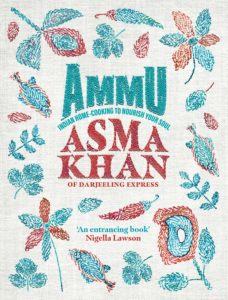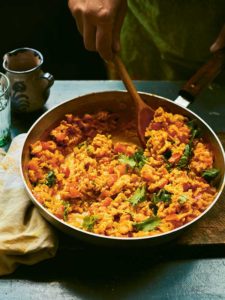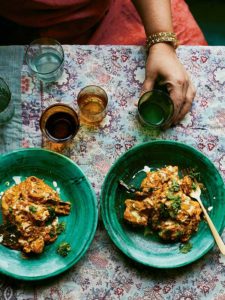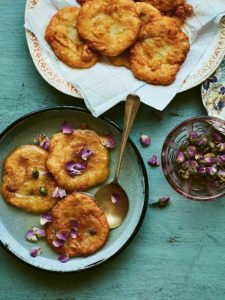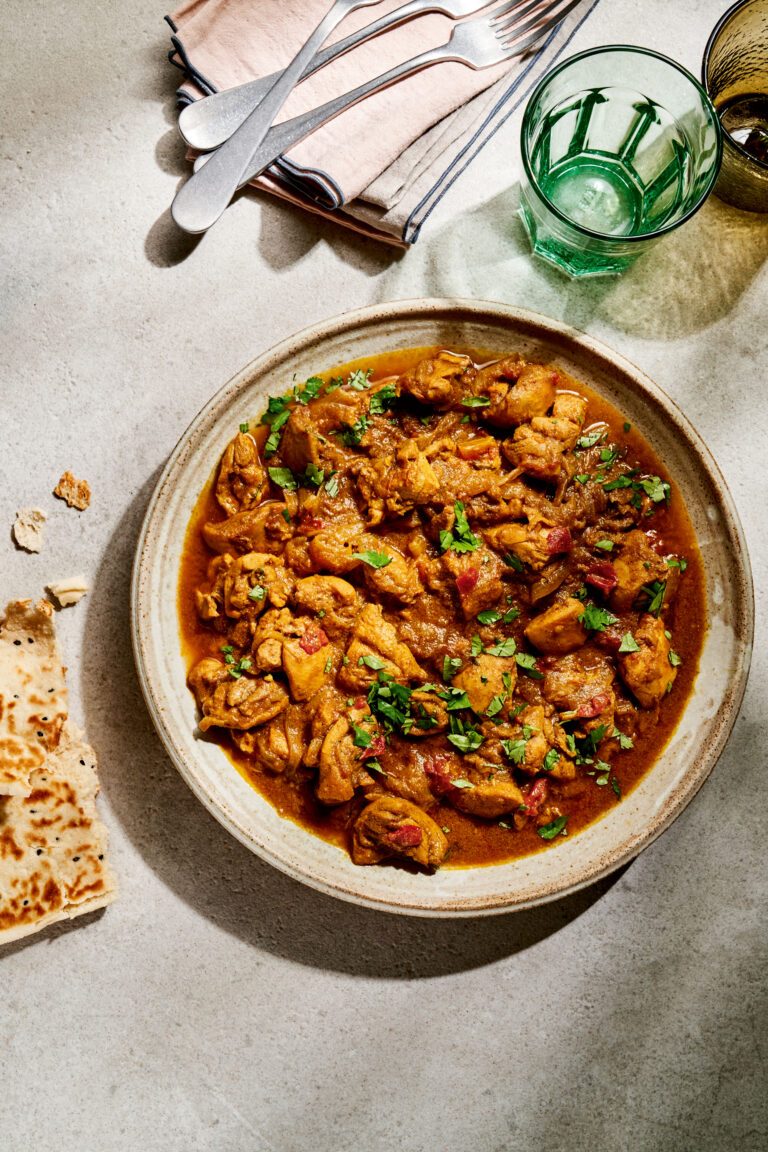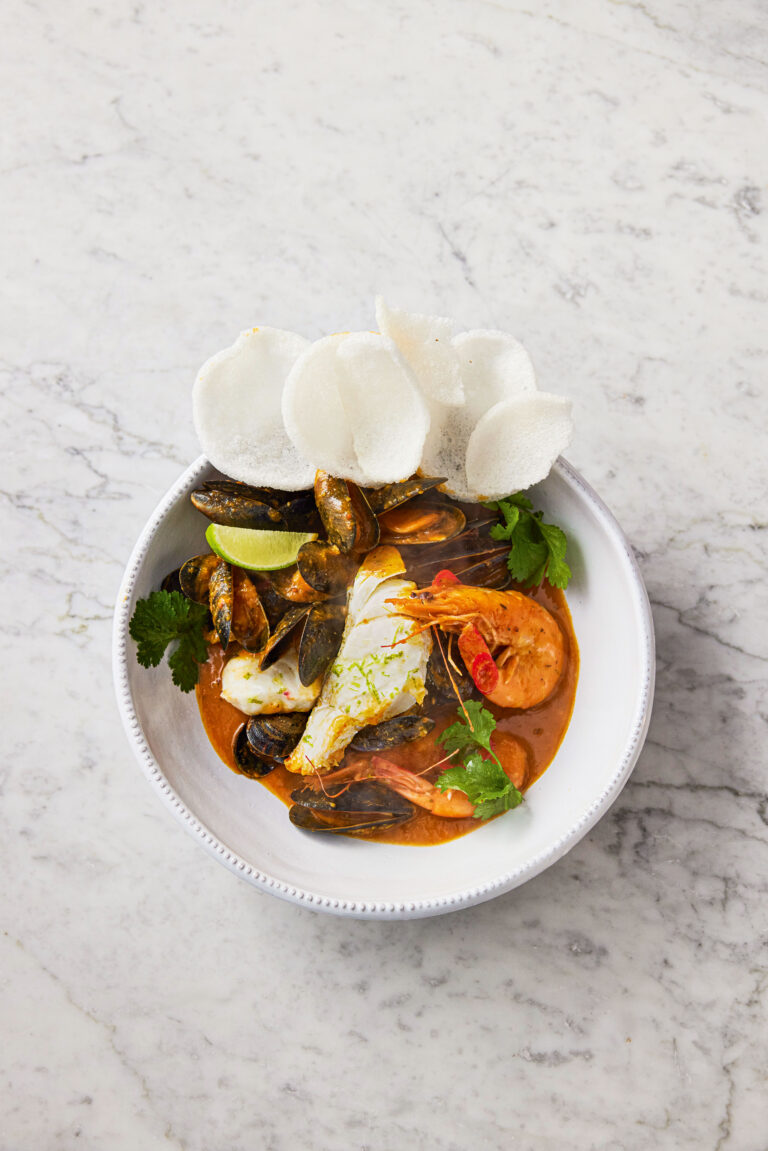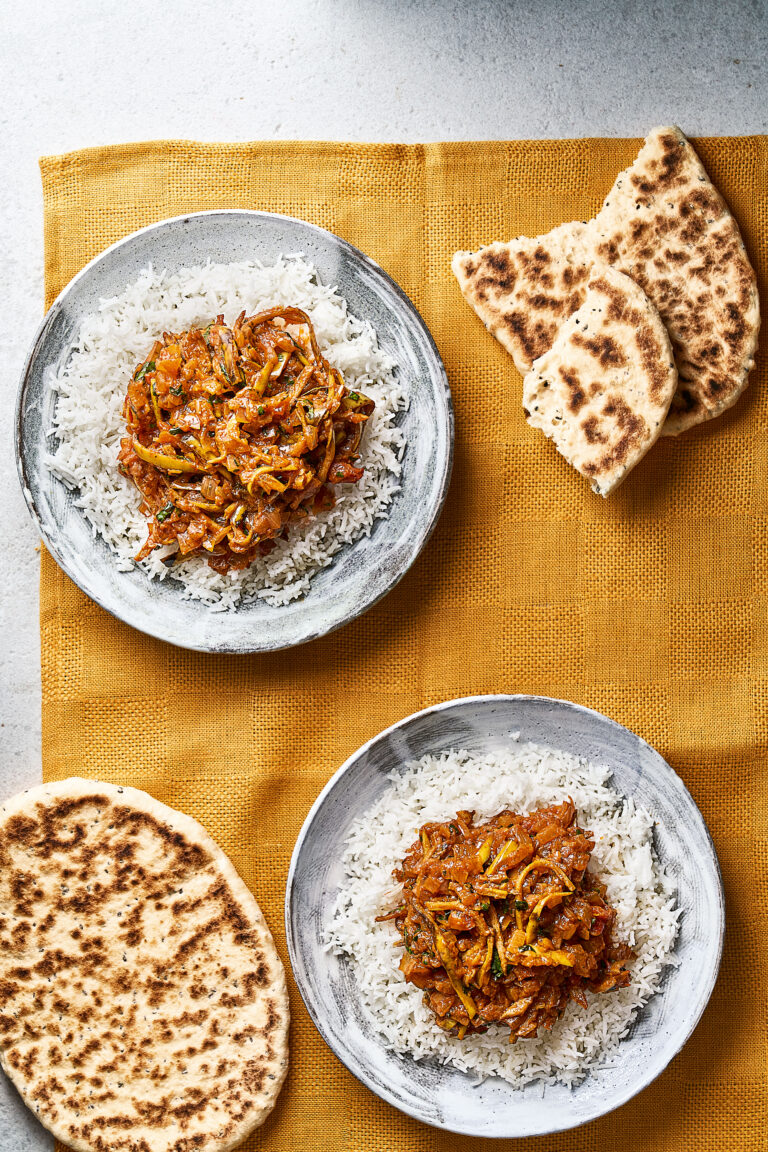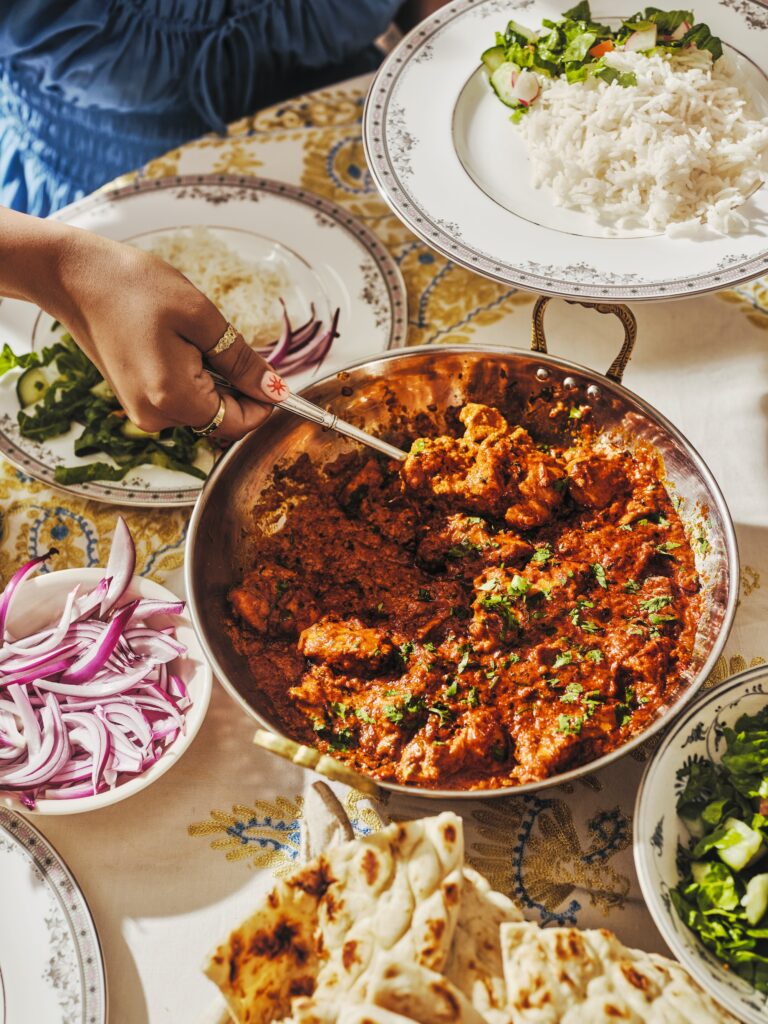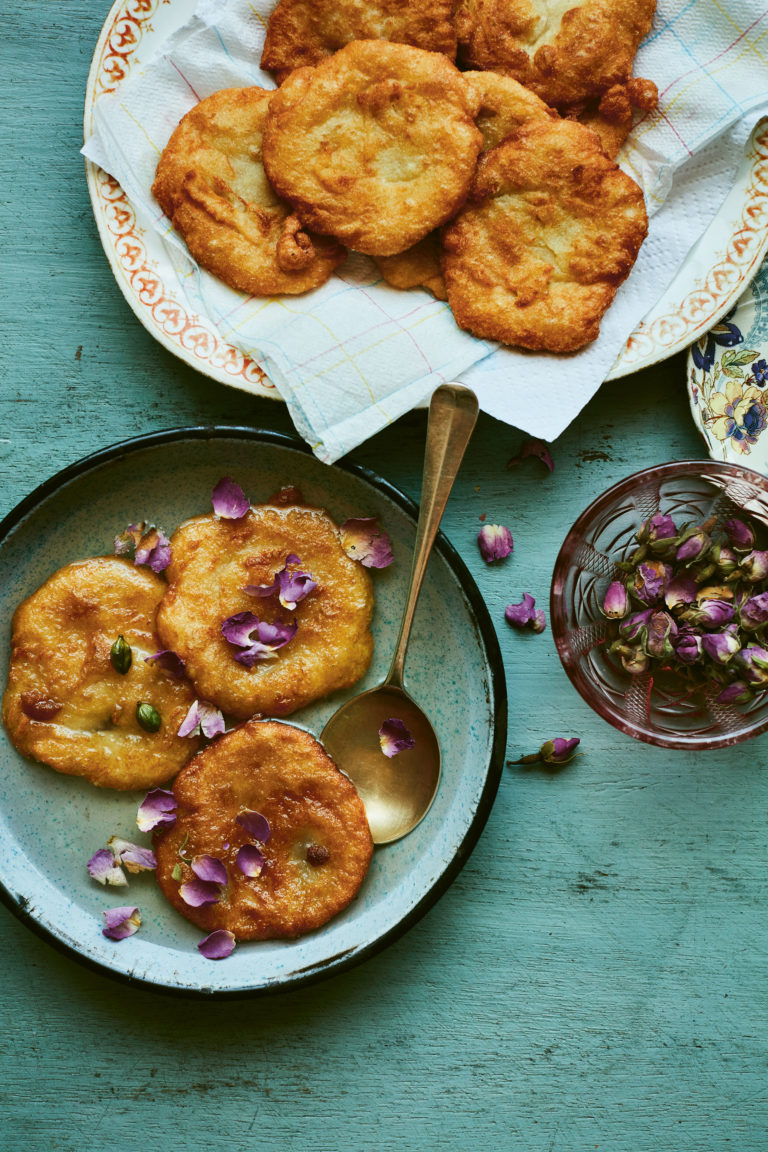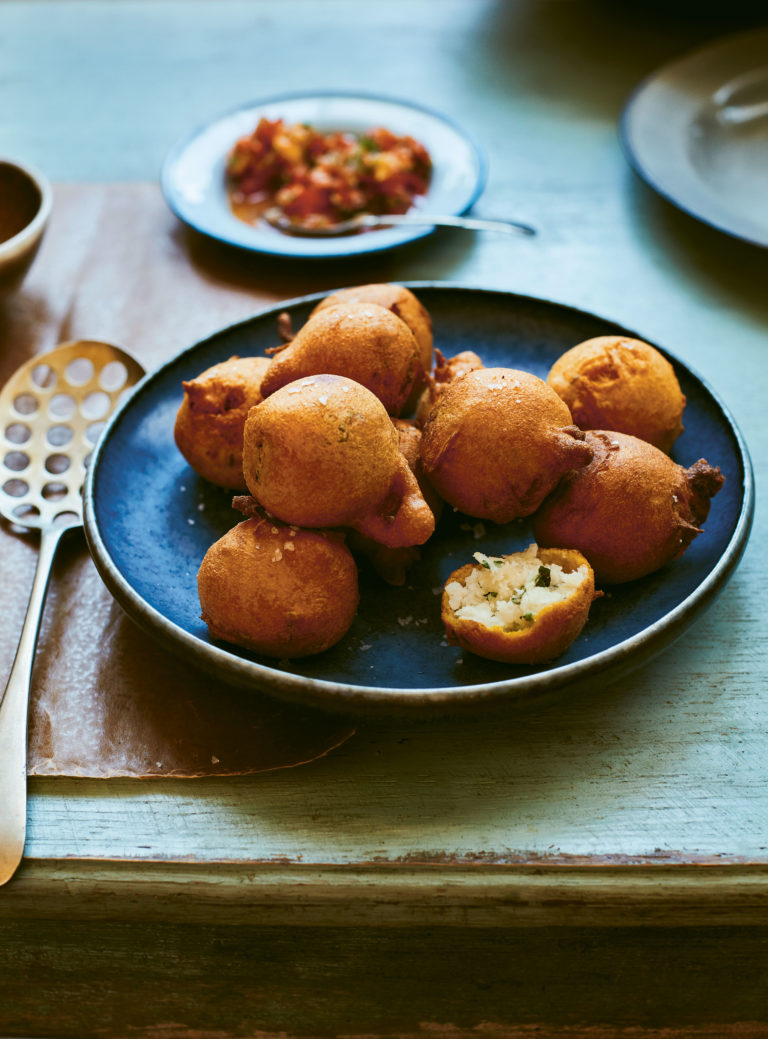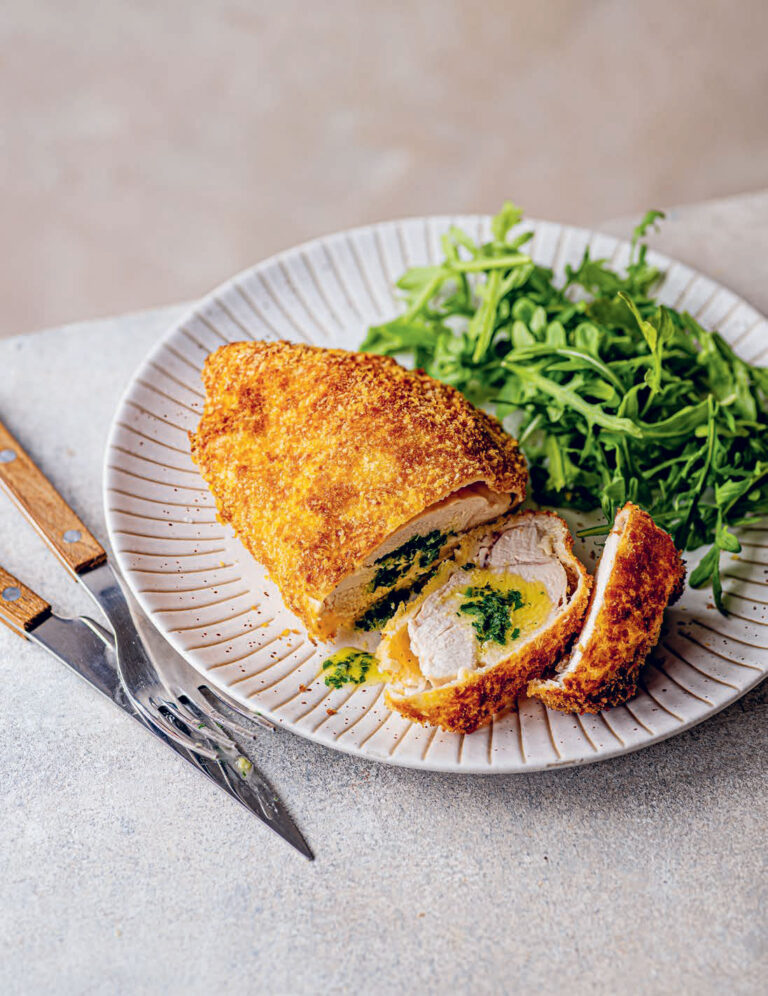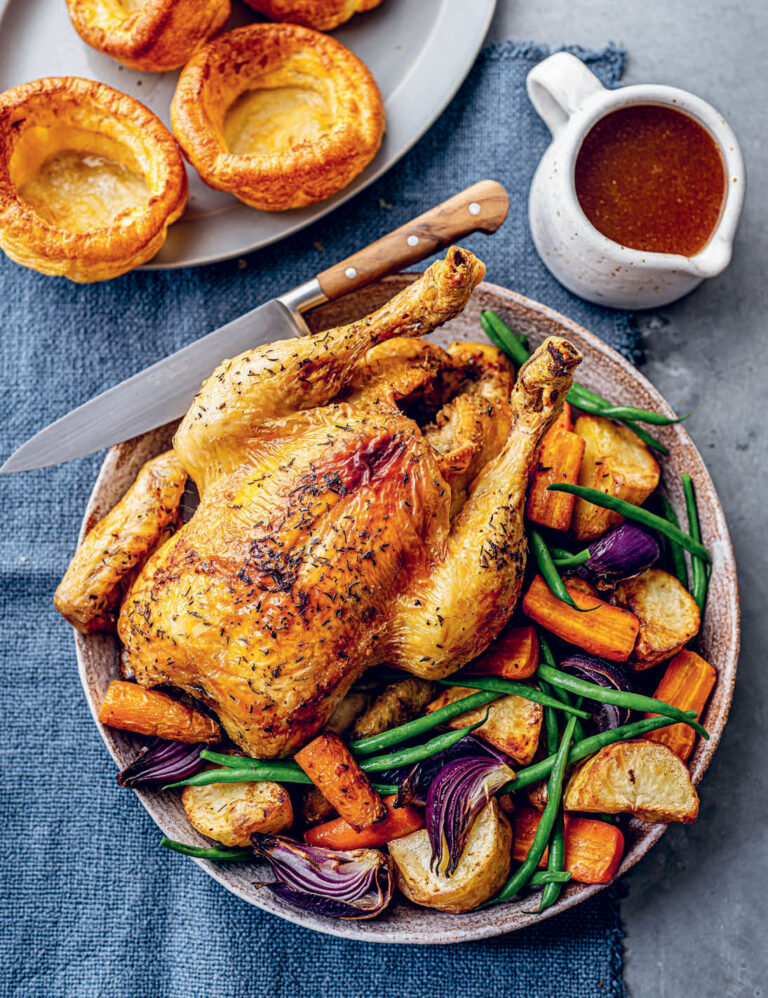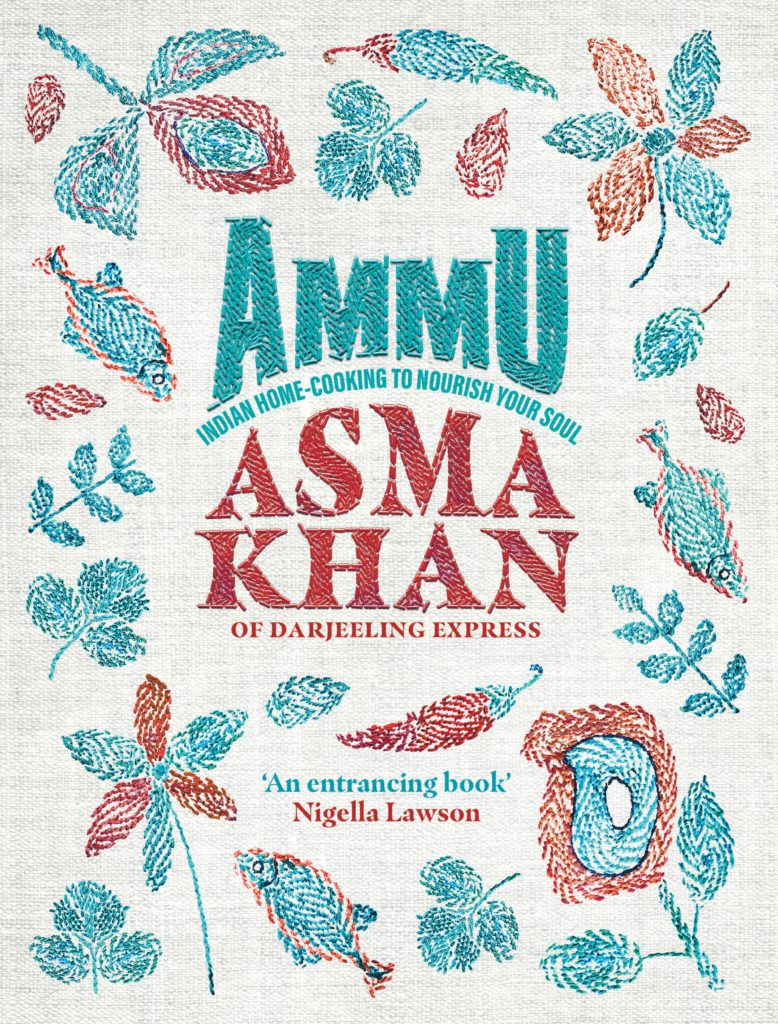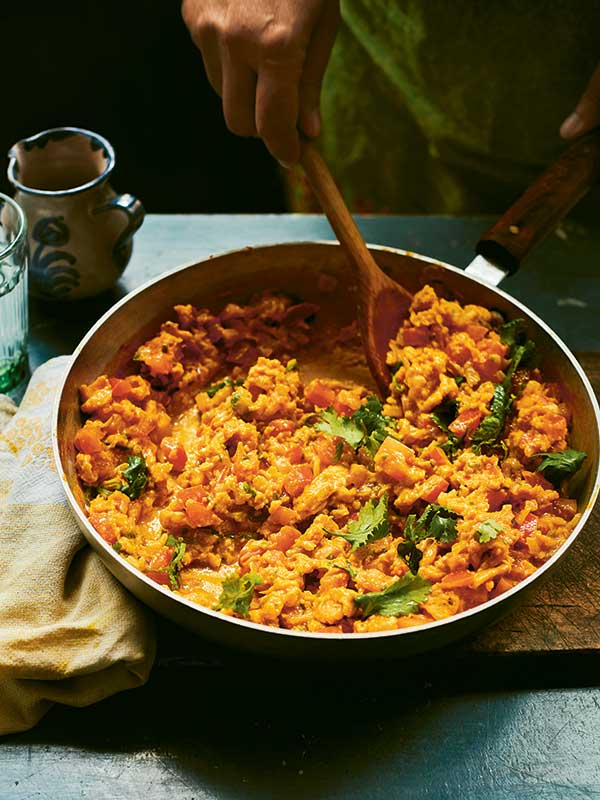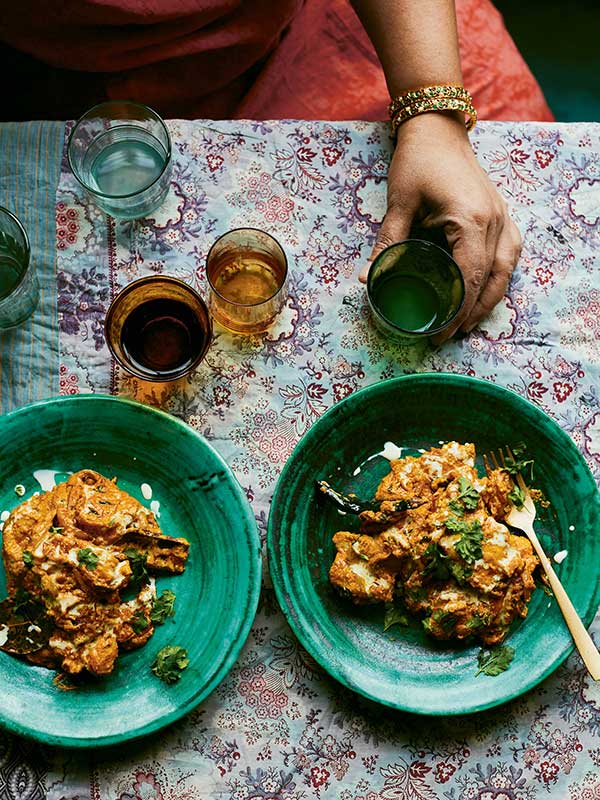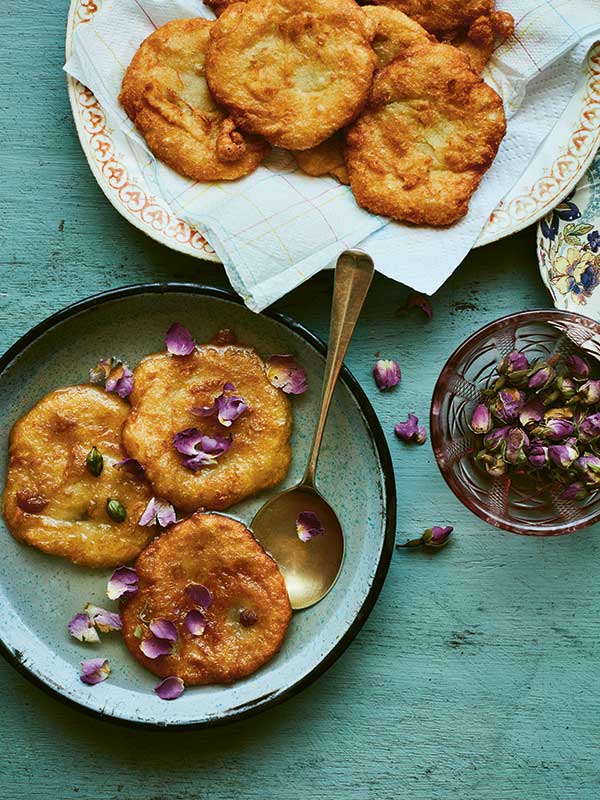Asma Khan’s Ammu’s Chicken Biryani
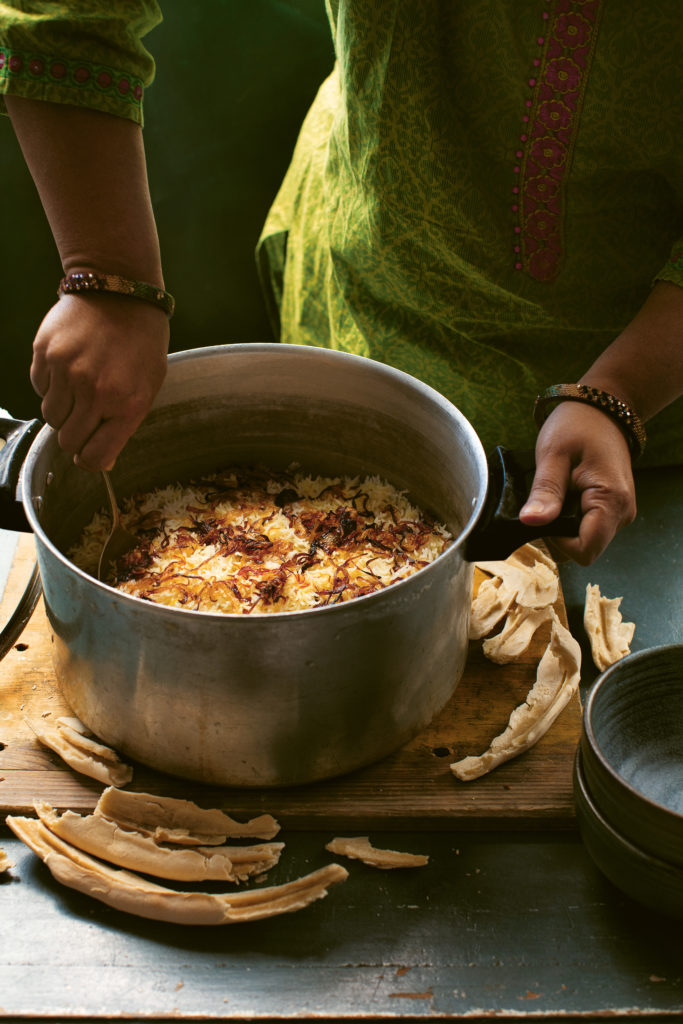
Asma Khan's classic chicken biryani recipe combines the warming flavours of saffron-infused milk, cinnamon, cardamom and cloves. A true celebratory feast of a dish.
From the book
Buy From
Introduction
Biryani was always made for big celebratory occasions. In my mother’s family, it was usually made with khasi, or goat, and cooked in a giant pot with layers of rice, meat and potatoes infused with spices and saffron. This recipe is a very personal one. This was the biryani that was made just for the five of us – my parents, my two siblings and me. On days when there was some good news, or more typically on days when something had gone wrong – from my brother losing a cricket match or me not doing so well in my exams – Ammu would get this biryani on the table and suddenly everything seemed okay! This is also usually the last dish I eat at home before I make the five-hour car journey from my parents’ home to the airport to catch my flight to London. I always felt that layered in that biryani were things my mother couldn’t say. When the biryani arrived on the table, it felt like Ammu’s secret code, telling me that she loved me.
Ingredients
| 200g | plain flour |
| 500g | good-quality basmati rice |
| 5 tbsp | salt |
| ½ tsp | saffron strands |
| 80ml | full-fat milk |
| 8 tbsp | ghee or vegetable oil (sometimes I mix both and it works really well) |
| 2 | white onions, thinly sliced into half moons |
| 1kg | skinless chicken thighs, on the bone |
| 3 | garlic cloves, crushed |
| 5–6cm piece of | fresh ginger, grated |
| 2 tbsp | full-fat Greek-style yoghurt |
| ½ tsp | chilli powder |
| 2 | green cardamom pods |
| 2 | cloves |
| 1cm piece of | cinnamon stick |
| 1cm piece of | mace, crushed |
| ⅛ tsp | grated nutmeg |
| ¼ tsp | sugar |
| juice of ½ | lemon |
Essential kit
You will need: a heavy-based pan with a tight fitting lid
Method
Mix the flour with enough water to make a firm dough, cover and leave to rest.
Wash the rice in a bowl of cold water, moving your hand in gentle circular movements in one direction to avoid breaking the delicate tips of the rice (the virtually invisible tips, if broken off, will boil rapidly when the rice goes into the hot water, because of their size, and turn into gluelike starch, which will make all the rice sticky). Wash the rice in several changes of cold water until the water remains clear.
Next, soak the rice. There should be at least 15– 20cm of water in the bowl above the rice level. Add 6 teaspoons of the salt and soak the rice for at least 2 hours. The long soaking allows the rice to absorb water. As the rice is not hollow and dry when it is put into boiling water, the cooking time is minimised; this will help keep your rice grains long and separate.
Put the saffron in a small bowl. Warm the milk to tepid: my mother would describe it as blood temperature – if you touch the milk it should feel only slightly warm. If you are using a microwave to heat the milk, remember to stir the milk before checking the temperature as there may be hot spots. Pour the tepid milk over the saffron and set aside to infuse.
Heat the ghee or oil in a heavy-based pan over a medium–high heat and fry the onions until caramelised. Using a slotted spoon and leaving as much of the oil in the pan as possible, remove the onions to a plate, spreading them across the plate to cool.
Remove half the oil from the pan and set aside. In the remaining oil add the chicken and cook over a medium–high heat until golden brown on both sides. Add the garlic, ginger, yoghurt, chilli powder and 2 teaspoons of the salt and cook over a medium–high heat until the garlic and ginger have lost their raw smell and the yoghurt has reduced. Add half the caramelised onions, then add warm water to cover the chicken, bring to the boil, then cover and simmer for about 25 minutes. You do not want the chicken to be tender: it should still be firm, as it will be cooked further with the rice.
Drain the soaked rice. Boil the kettle and pour the water into a large pan. Bring back to the boil, add another 6 teaspoons salt, then add the drained rice and boil until the rice is three-quarters cooked (this should not take more than 5 minutes). To test, remove one grain from the boiling water and squeeze it. There should be a hard core to the grain of rice. When the rice reaches this stage, drain and spread it on a tray to prevent it from continuing to cook.
To assemble the biryani you will need a heavy-based pan with a tight-fitting lid. Using a slotted spoon, remove the chicken from its cooking liquid and place it in the pan. Strain the cooking liquid and pour over the chicken. Try to squeeze as much as you can from the onion/ginger/garlic residue, so the stock is nice and thick. It should just about cover the chicken pieces. Next, add the cardamom, cloves, cinnamon, mace and nutmeg. Add half the saffron milk, the sugar and squeezed lemon juice. Then add the rice, ensuring it covers the chicken. On top of the rice add the remaining caramelised onions, the remaining saffron milk and the reserved oil.
Put the biryani pan over a high heat and wait until the steam starts coming out. Let the steam come through for 1 minute. Meanwhile, roll the dough into tubes and use the dough to seal the lid of the biryani pan. Put the pan on top of an iron frying pan or tawa over a medium–high heat: this is to diffuse the heat. If you do not have an iron pan, put the biryani pan into a preheated oven at 190°C/170°C fan/ gas 5 for 10 minutes. After 10 minutes, turn the oven to 150ºC/130ºC fan/gas 2 and leave for 20 minutes.
If you are using a tawa on the hob, reduce the heat to low, cover the top of the pan with a folded clean kitchen cloth and leave for 20 minutes. When ready to serve, unseal the biryani lid. Using a large spoon and starting from one side, gently lift the chicken up and mix with the rice. You need to gently merge the wet rice with the dry rice on the top, so each grain is perfectly moist.
Reviews
4 Ratings
Have you tried this recipe? Let us know how it went by leaving a comment below.
Thank you for your rating. Our team will get back to any queries as soon as possible.
Please note: Moderation is enabled and may delay your comment being posted. There is no need to resubmit your comment. By posting a comment you are agreeing to the website Terms of Use.
